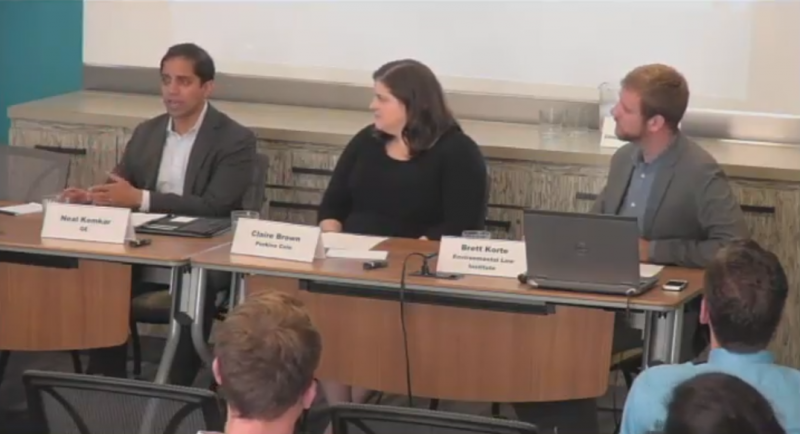Even after lawmakers leave the capital for their August recess, there’s still a summer buzz in the air at ELI’s offices in Washington, D.C. From June through August, nearly every open desk is filled by a volunteer, intern, or law clerk working to further ELI’s mission and support its many programs around the world. This summer, I was fortunate enough to spend a brief three months in the nation’s capital as one of those students. My fellow interns and law clerks hailed from as far as U.C. Berkeley and as close as Georgetown University Law Center, and each brought a colorful set of experiences and perspectives to the office.
For experiential learning, there is never a shortage of fascinating projects to dive into at ELI. My fellow interns worked on a wide array of issues including environmental peacebuilding, nanotechnology, brownfield revitalization, biodiversity, and more. To explore our interests at a more personal level, we didn’t have to venture from our seats; discussions with my two desk mates often meandered toward environmental economics or the writings of Wendell Berry, two of our cherished passions. For guidance on professional pursuits or for commiseration over LSAT preparation, meanwhile, the summer law clerks were just a few desks away.
 |
Every Thursday, ELI Summer School provided a welcome opportunity to get back to basics. This weekly seminar series presented the fundamentals of environmental law to a diverse audience of students, recent graduates, and second-career professionals gathered to hear experts share their knowledge and experiences. The sessions addressed a wide array of topics, including air, water, hazardous waste, and more.
Each year of Summer School brings new experts to the presenters’ table with fresh regulatory and judicial updates. These insights help prepare students for further study in the fall, help aspiring lawyers define professional ambitions, or provide actionable guidance in an ongoing career. The sessions are free to attend either in-person or online. This year, discussion addressed greenhouse gas regulation under the Clean Air Act, the Trump Administration’s regulatory agenda, new review procedures for high-priority infrastructure projects, and more. In a session on products regulation, Lynn Bergeson (Managing Partner, Bergeson & Campbell, P.C.) joined ELI to explain the Frank L. Lautenberg Chemical Safety for the 21st Century Act, which was passed in 2016 to revamp TSCA, the country’s framework law for regulating industrial chemicals.
For my part, a personal interest in planning and urban development drew me to the Summer School session on land use law. Local attorney Gus Bauman (Of Counsel, Beveridge & Diamond P.C.) presented on the complex relationship between city, state, and federal land management practices, and explored how planning and zoning frameworks interact with state and federal environmental statutes. Mr. Bauman, whose work in this area has been cited by the U.S. Supreme Court, also guided a lively conversation about controversial applications of eminent domain and the Takings Clause.
For those interested in catching up on ELI Summer School sessions, recordings are available on ELI’s website. For anyone interested in attending in the future, keep an eye on ELI’s summer job offerings or stop by our office next summer. It’s a safe bet that there will be fresh faces in the hallways, new topics to explore, and, of course, that summer buzz in the air.
